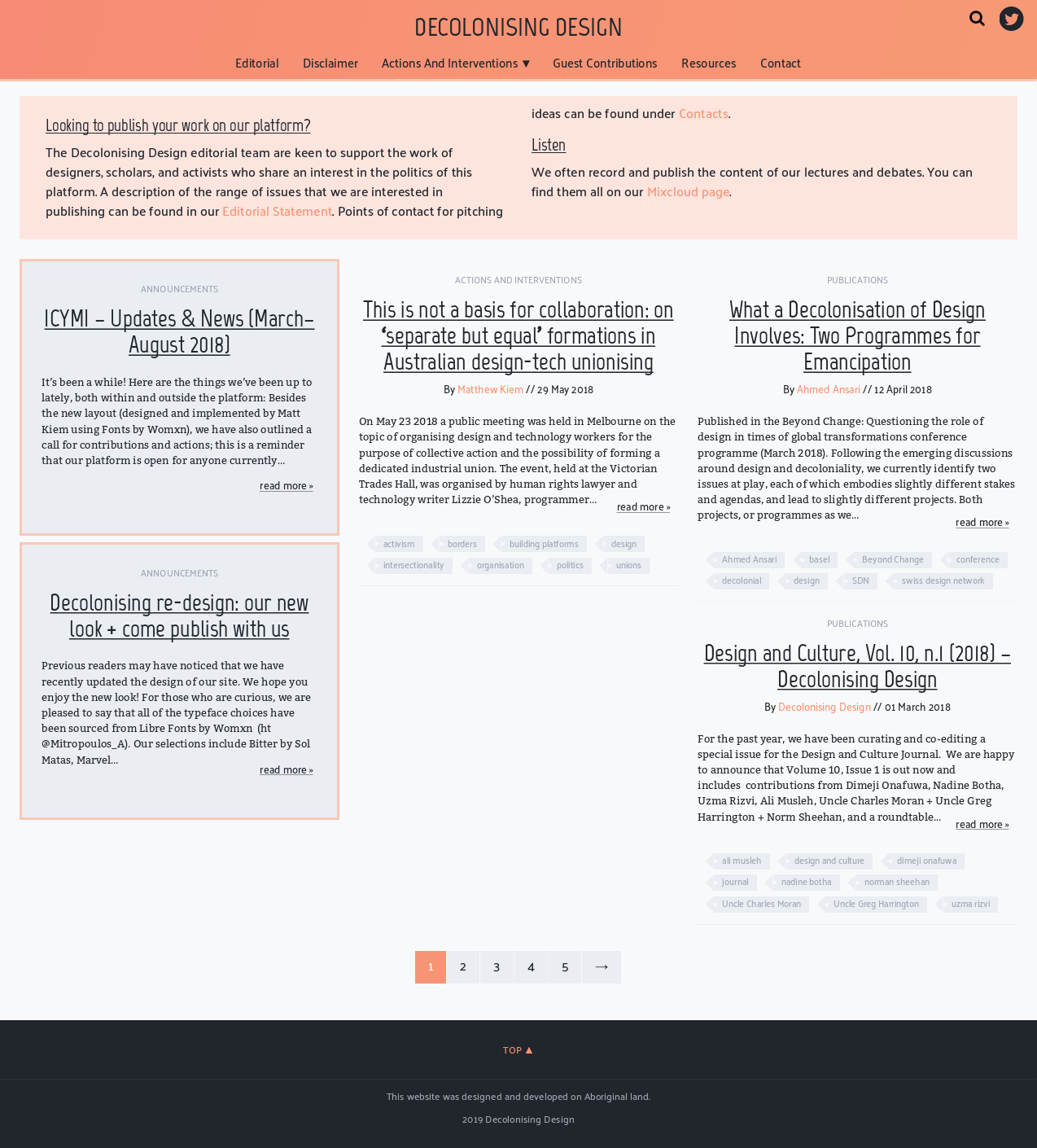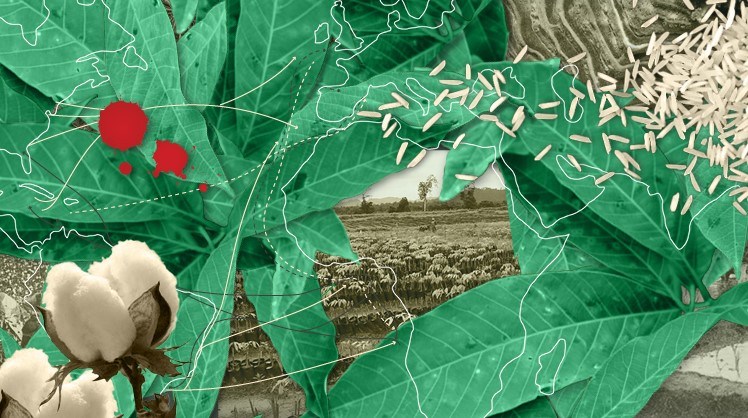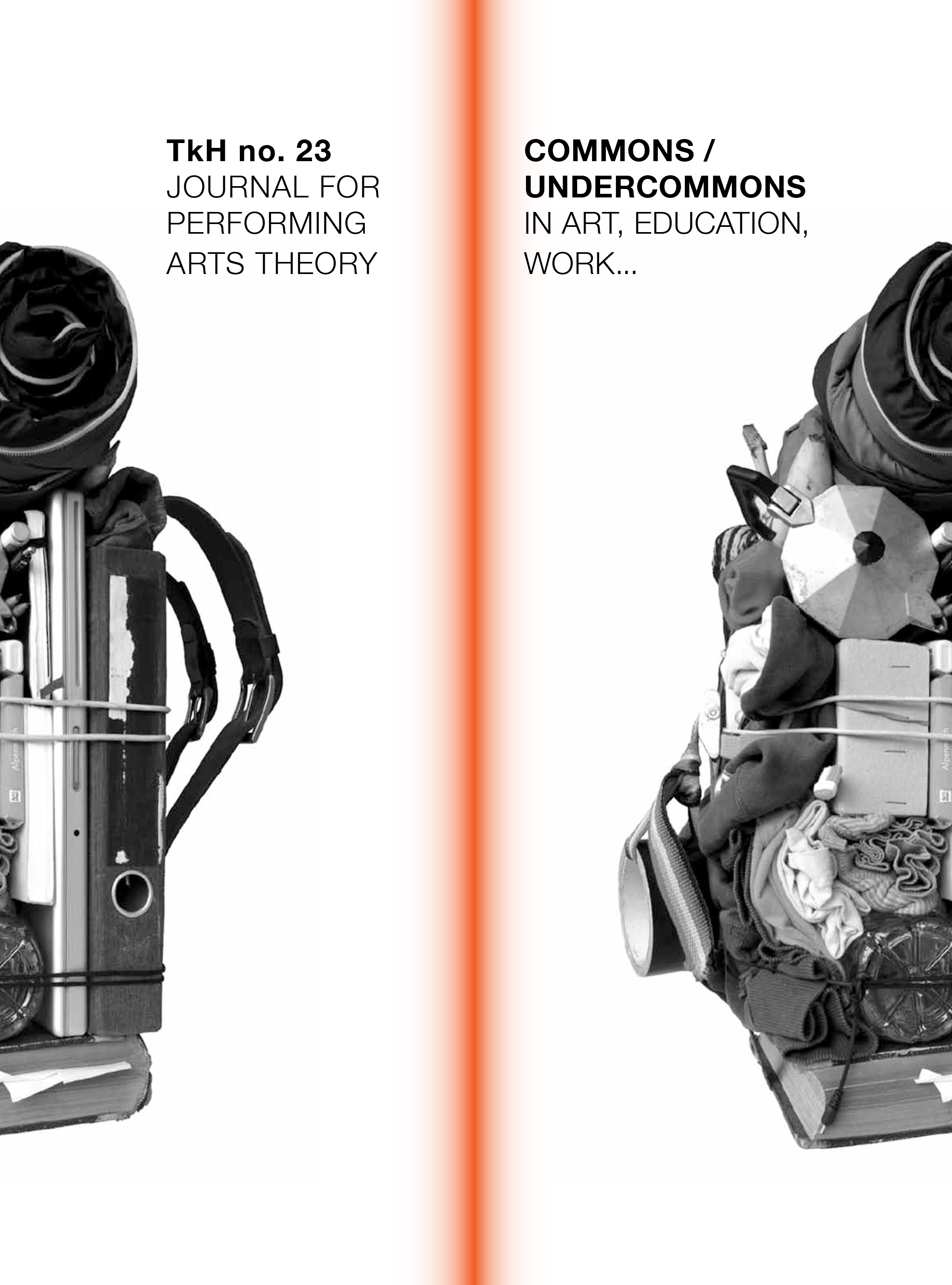Decolonising Design (2016–)
Filed under online resource | Tags: · decolonization, design, gender, politics, postcolonialism, race

“Our objective—as design scholars and practitioners—is to transform the very terms of present day design studies and research. Designers can put to task their skills, techniques, and mentalities to designing futures aimed at advancing ecological, social, and technological conditions where multiple worlds and knowledges, involving both humans and nonhumans, can flourish in mutually enhancing ways. For us, decolonisation is not simply one more option or approach among others within design discourse. Rather, it is a fundamental imperative to which all design endeavors must be oriented.
It is with the aim of providing an outlet for voices from the fringes, the voices of the marginal and the suppressed in design discourse, that we have opened this platform. We welcome all of those who work silently and surely on the edges and outskirts of the discipline to join and contribute to conversations that question and critique the politics of design practice today, where we can discuss strategies and tactics through which to engage with more mainstream discourse, and where we can collectively experiment with alternatives and reformulations of contemporary practice.” (from the Editorial)
Edited by Ahmed Ansari, Danah Abdulla, Ece Canli, Mahmoud Keshavarz, Matthew Kiem, Pedro Oliveira, Luiza Prado, Tristan Schultz, a.o.
HTML
A Manifesto for Decolonising Design (2019; Editorial, 2016/2017, HTML)
Design & Culture 10(1): Decolonizing Design (special issue of journal, 2018)
The Plantationocene Series: Plantation Worlds, Past and Present (2019)
Filed under book | Tags: · anthropocene, capitalism, environment, land, plantation, plantationocene, plants, politics

“The Plantationocene is an alternate name for the epoch often called the Anthropocene. Inspired by the scholars and artists visiting University of Wisconsin–Madison as part of the 2019-2020 Plantationocene Sawyer Seminar, this series aims to create a conversation about multiple forms of plantations, both past and present, their materialities, the economic, ecological, and political transformations they wrought, and their significance to the making of human bodies, capitalism, and land over the course of four centuries.”
Contributors: Sophie Sapp Moore, Monique Allewaert, Pablo F. Gómez and Gregg Mitman; Deborah A. Thomas; Raina Martens and Bii Robertson; Leanne Day and Rebecca Hogue; Kwynn Johnson; Donna Haraway and Anna Tsing, a.o.
Edge Effects dossier
Publisher Center for Culture, History, and Environment (CHE), Nelson Institute for Environmental Studies at the University of Wisconsin-Madison, 2019
Creative Commons BY-NC-ND 4.0 International License
TkH, 23: The Commons / Undercommons in Art, Education, Work … (2016)
Filed under book, journal | Tags: · art, commons, curating, education, knowledge, politics, subjectivation, undercommons, university, work

“The fifteen pieces in this issue are the result of a somewhat peculiar endeavor. Between May 29 and June 1, 2014, we held a conference at Frankfurt Lab under the title of The Public Commons and the Undercommons of Art, Education, and Labour. Its title reflected our concerns about diagnosing the current predicament of higher education in the arts and humanities, artistic production, and cultural work. To summarize briefly, two turns have lately merged that characterize the transformation of work, knowledge, and subjectivation processes across the arts field and the Academy: the educational and the curatorial turn. While the educational turn has yielded a new academic (professional) valorization of artistic praxis (in the so-called creative or practice-based PhDs), coupled with a proliferation of degrees and a prolongation of financialized, debt-stricken study (also as a temporary deferral or relief from the market and its projective temporality), the curatorial turn has corresponded to a neoliberal style of managing both art and education, reducing time and attention, critical and transformative (poetic) engagements with one’s own art and study.” (from the Introduction)
With contributions by Harutyun Alpetyan, Gigi Argiropoulou, Stefano Harney, Gal Kirn, Boyan Manchev, Randy Martin, Fred Moten, Isabel de Naverán, Norbert Pape, Nina Power, Goran Sergej Pristaš, Jason Read, Jan Ritsema, Ana Vujanović, and Josefine Wikström.
Edited by Bojana Cvejić, Bojana Kunst, and Stefan Hölscher
Publisher TkH (Walking Theory), Belgrade, and Institute for Applied Theatre Science, Justus Liebig University, Giessen, April 2016
Creative Commons BY-NC-SA 3.0 Serbia License
ISSN 1451-0707
72 pages

